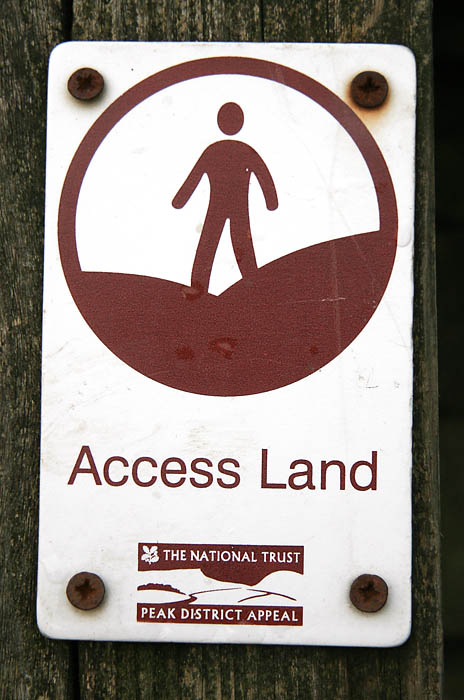 Walkers are being put off using access land because information on right-to-roam areas is hard to come by.
Walkers are being put off using access land because information on right-to-roam areas is hard to come by.
That’s the verdict of a committee of MPs looking into how the countryside of England and Wales was opened up following the passing of access laws. The chairman of the Public Accounts Committee, Edward Leigh, has warned Natural England to take note of mistakes made as they consider coastal access.
Left: access land sign
The committee found that staff in some tourist information centres had never heard of Countryside and Rights of Way Act access areas. Staff need to be trained immediately to be able to answer walkers’ questions. There should also be information provided other than on the official website.
The committee also found that the cost of introducing access areas was almost double the original estimate. The £24.6m overspend meant other countryside projects were either curtailed or put on hold.
Mr Leigh’s damning report on the Countryside Agency’s handling of the introduction of the right-to-roam said: “Mapping and determining which land should be covered by the right of open access proved more expensive than expected and the agency's board were not alerted to the increasing costs due to a lack of any financial reports on the project between October 2001 and April 2003.”
While encouraging fellow walkers to use access land – he is an enthusiastic walker – Mr Leigh says no-one yet knows how many people are taking advantage of right-to-roam areas. 80 percent of access land is not covered by public transport links and there are worries about disease containment in livestock from the farming community.
Open access may also lead to increased ‘wear and tear’ on sensitive areas, many of which were classified as Sites of Special Scientific Interest.
The committee said the website set up by the Countryside Agency to inform the public of access areas, and which was the prime means of letting people know, was confusing and difficult to use. Natural England, which took on the responsibility for countryside access last autumn, is due to report on the state of access land this summer.
All of which leads to the conclusion that Defra, the Government department headed by David Miliband, is unlikely to take the path of mapping coastal areas, one of the options being considered by the department during the consultation which ends in September. Or as Edward Leigh puts it: “Natural England will want to note the Committee's conclusions and recommendations on this project as they progress any plans to open up access to the coastline of England.
You can make your views on access to England’s shoreline known via the Defra website.
See also